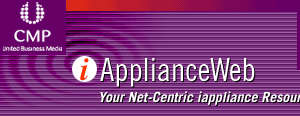



 |
 |
|
|
 |

|
||
|
|
|
|
|||

|
Microsoft opens CE for 'non-commercial' useBy Charles J. Murray PARK RIDGE. Ill. Microsoft Corp. announced Tuesday (July 25) that it is accelerating its commitment to academia by creating a Windows CE Shared Source License and rolling out a new product called Visual Studio .NET Academic. The announcements, made by company chairman Bill Gates in a keynote speech at the Microsoft Research Faculty Summit in Redmond, Wash., are said to be closely tied to one another because they are aimed at "non-commercial users." Although the first announcement raised questions about whether Microsoft was taking aim at competition from Linux, the non-commercial aspects of it made industry analysts skeptical about any larger impact. "It appears on the surface that Microsoft is moving CE toward the same general plan that's used for Linux under the GPL [general public license]," said Jerry Krasner, executive director of CMP's Electronics Market Forecasters (Waltham, Mass.) "But it doesn't seem as if Microsoft has provided sufficient motivation for embedded developers to migrate from Linux to CE." Krasner added, however, that developers will be able to make more informed judgements about the matter as additional information trickles out. Microsoft said its Windows CE Shared Source License allows users to access Windows CE code, modify it and redistribute it as long as they don't do it "in a commercial way." "We're not asking for any rights to derivations," said Scott Horn, director of marketing for Microsoft Corp.'s Embedded Appliance Platform Group. "People can use it for non-commercial purposes pretty much any way they want." Microsoft executives said they foresee the shared license being used primarily in academic research, teaching and by "hobbyists" who want access to the source code for their own applications. As a result of the announcement, approximately 110,000 lines of Windows CE source will be made available on the company's Web site. Available code includes the source kernel, device managers, file systems and device drivers, among other software. The announcement is seen as a modification to an earlier declaration in which Microsoft said that its Windows CE 3.0 code would be made available on a Web site for read-only purposes. Microsoft executives said that the shared source announcement goes hand in hand with the introduction of Visual Studio .NET Academic, a program that is said to be a "superset" of the Visual Studio .NET Professional software. The new version is said to offer several enhancements for academic users, including clearer documentation for students and laboratory users as well as an assignment management system for professors grading student homework. Visual Studio .NET is Microsoft's rapid application development tool for building Web applications and XML Web services. Microsoft executives said that several of its features, such as the ability to support 20 computer languages and serve as an environment for teaching Internet standards, have made it popular in universities. "The .NET platform has been of special interest to those in teaching and research," said Dennis Crain, academic product manager for Visual Studio .NET. "So we've made a development tool specifically tailored to those users." Microsoft said it will give beta versions of Visual Studio .NET Academic to each of the 300 researchers and faculty members attending the three-day summit. |
|
||||||||

Terms and Conditions Privacy Statement |
||||||||||